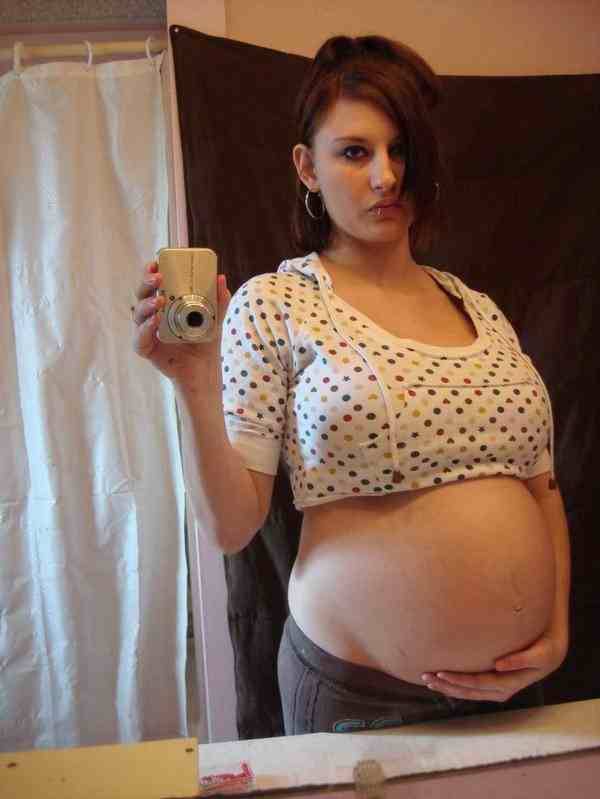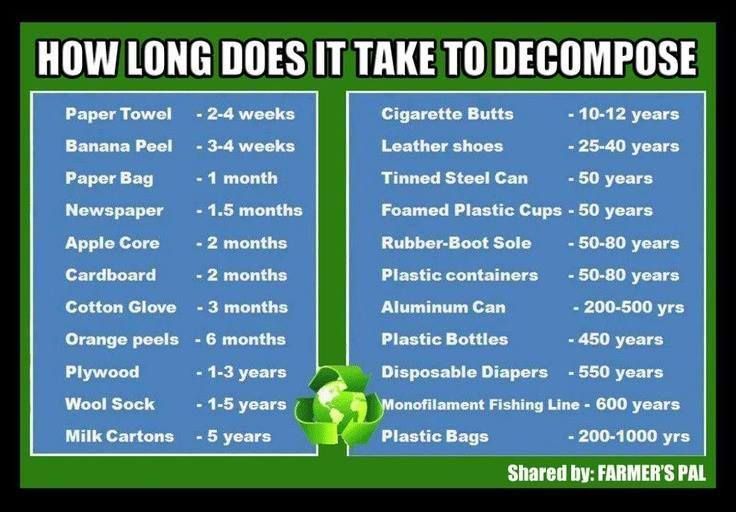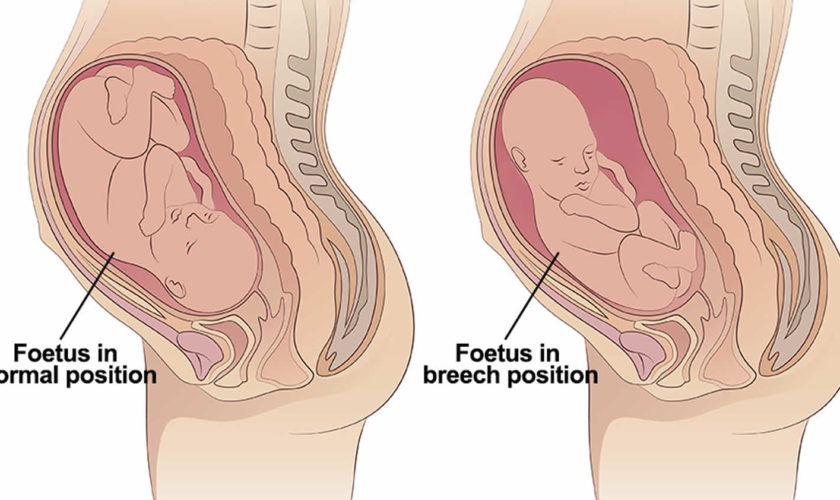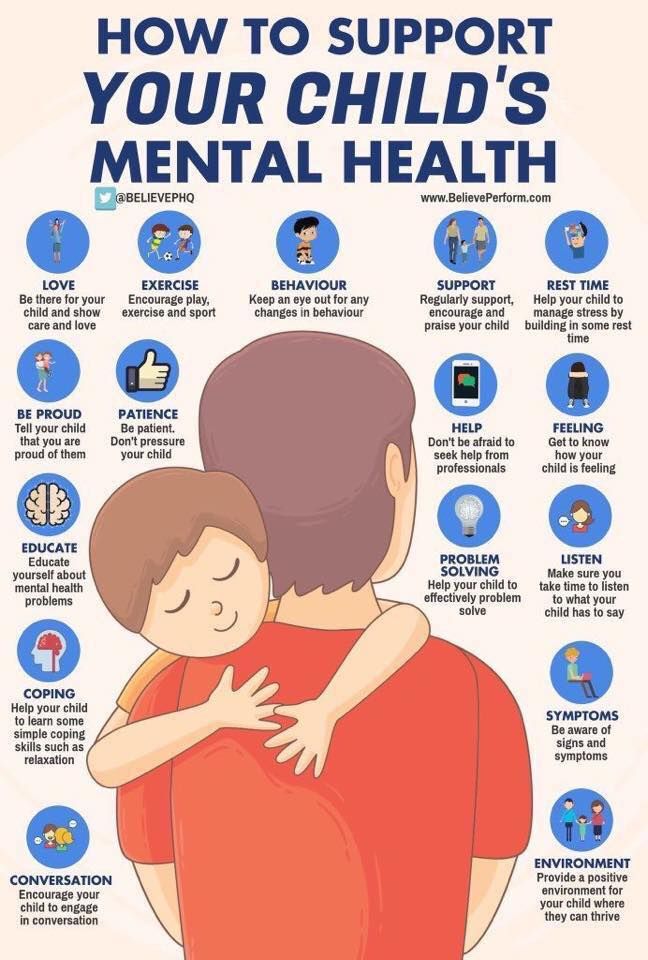Supporting teenage pregnancy
Teenage pregnancy: care and support
Teenage pregnancy: your feelings as a parent
People feel many things when they hear their teenage child is going to become a parent.
You might feel shock, anger, disappointment and concern about your child’s future. There could be regret that you didn’t do enough to stop the pregnancy from happening. And you might wonder about what extended family members, friends and people at school and in your community will think.
On the other hand, you might think it’s wonderful and feel excited about becoming a grandparent.
You might also have mixed feelings . And your feelings might change over time, especially as the time of birth comes closer.
Your feelings are important, but during a teenage pregnancy, you might sometimes need to focus more on supporting your child.
When the time is right, starting a conversation about feelings that come up during the pregnancy can be good for your relationship with your child.
Your teenage child’s feelings about pregnancy
Your teenage child is probably going through some intense and mixed feelings about the pregnancy and the idea of becoming a parent.
If the pregnancy is planned, your child might be looking forward to parenthood. But if the pregnancy isn’t planned, your child might be worried about telling you and finding out how you feel. There’s also the worry about what extended family and other people will think, now and after the baby is born.
Young people who become parents often experience judgmental attitudes from peers at school and other people in their lives. If your child knows they can come to you for support, it might help with coping.
Your child might not know what kind of support will help during pregnancy. By saying something like ‘What can we do together to help you right now?’, you’re helping your child to think and talk about the support they need.
Encouraging your child to get support through the school’s wellbeing team is also a good idea.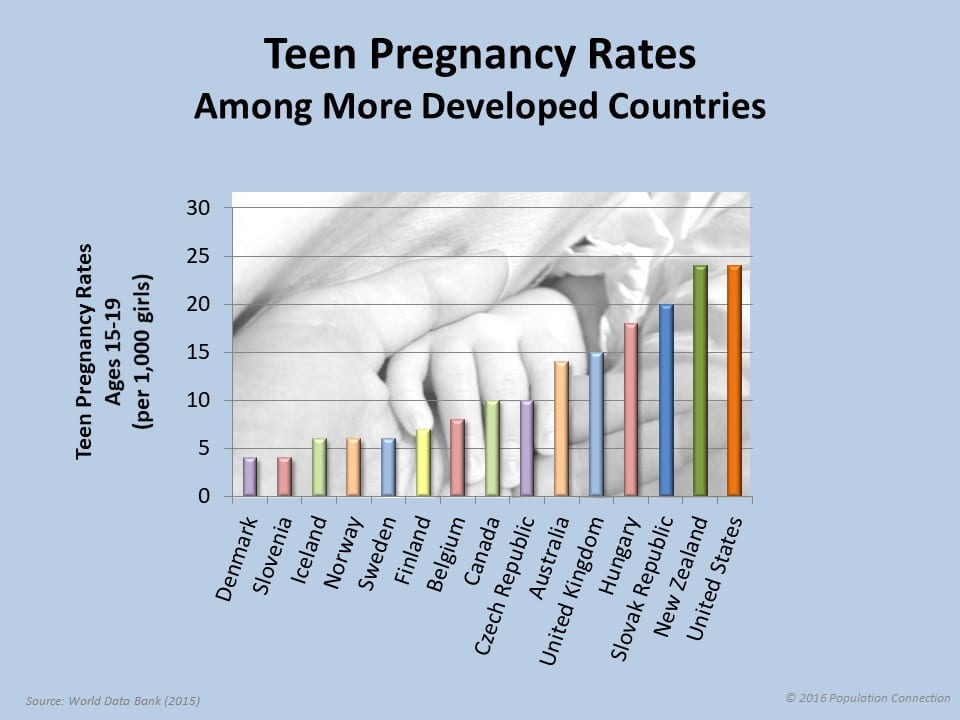
Pregnant teenagers: pregnancy care and birth choices
Pregnant teenagers under 19 years need extra care in pregnancy and during parenting. They have special health concerns because their own bodies and brains are still growing and developing, and their emotions can be very mixed and fragile.
Early and regular antenatal care can help pregnant teenagers have healthy pregnancies.
Step 1: see your GP
Your teenage child needs to see a GP as soon as possible to confirm the pregnancy and to have some basic health checks.
Your child will need to book several antenatal appointments and antenatal tests at this first GP visit.
A GP can also give your child options for antenatal care and birth.
Step 2: look into teen-specific antenatal care
Ask the GP and the local child and family health service whether there are any local antenatal services experienced in working with pregnant teenagers.
These services can understand your child’s special physical, emotional, financial and educational needs.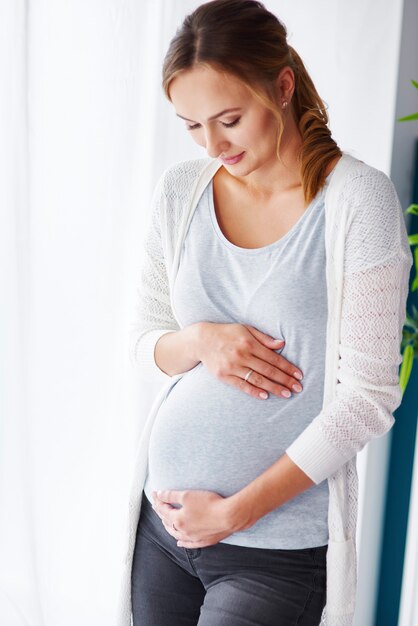 They usually have teams of people to care for pregnant teenagers – doctors, midwives, social workers, dietitians, counsellors and mental health workers.
They usually have teams of people to care for pregnant teenagers – doctors, midwives, social workers, dietitians, counsellors and mental health workers.
Step 3: look into antenatal classes
Antenatal classes are good for all parents-to-be. They give detailed information about labour, birth, breastfeeding, early parenting and support services.
Most hospitals have antenatal classes, and some hospitals have them especially for younger parents. If your child isn’t comfortable at birth classes, ask about other sessions or options. Sometimes school nurses are also midwives and can spend one-on-one time with teenagers at school.
Support and privacy: finding a balance
Legally, you might still be responsible for your child – but your child is going to be a parent. When your child talks privately with health professionals, it’s good practice for being responsible for the baby’s health later on.
Also, it might be a good idea if you, your child and your child’s partner can have an early conversation about how involved they want you and your child’s partner’s parents to be in antenatal care and birth. This can help you understand their needs and boundaries.
This can help you understand their needs and boundaries.
Your pregnant child will be going through many changes and feelings. Understanding pregnancy changes from week to week can help your child cope with what’s going on.
Healthy eating, exercise and lifestyle for teenage pregnancy
If your teenage child is pregnant, health professionals will talk with them about keeping healthy, managing stress and stopping risky activities.
It might be tempting to tell your child what to do or what not to do. But it’s good for your child to feel that you think they can make good health decisions for themselves and their baby. If your child is worried about anything or doesn’t know what to do, you can suggest they talk to their pregnancy health professionals.
Healthy eating
Healthy eating is especially important during pregnancy and breastfeeding. Good food supports the baby’s health and growth as well as your child’s. It’s also important for your child to avoid some foods and drinks.
If your child isn’t used to preparing their own meals or eating good food away from home, you can share some of your favourite healthy recipes. You can plan meals and go shopping together, which can also help your child with budgeting. You might even be able to spend some time together cooking.
Some community programs for young parents focus on healthy eating and run cooking classes.
If your pregnant child is significantly overweight or has a history of eating disorders, health professionals might refer your child to a dietitian.
Dieting
Your child might be uncomfortable with the way their body looks and feels during pregnancy. But pregnancy is not the time to try to lose weight through dieting or intense exercise. This can be harmful for the baby.
Your child should avoid:
- skipping meals
- taking diet or weight-loss supplements
- taking nutritional supplements claiming to be healthy for weight loss
- taking natural remedies claiming to be healthy for weight loss
- starting an intense exercise regimen.

You can encourage your child to talk with a doctor or midwife about the physical changes of pregnancy.
Staying active
Staying active can improve mood, fitness and sleep, boost energy and ease back pain. Along with healthy eating, physical activity during pregnancy might also reduce weight gain and diabetes. And it can help your pregnant child cope better during birth.
It’s good if your pregnant child checks with a midwife or doctor early in pregnancy about how much physical activity is OK. And if your child’s partner is pregnant, you can encourage your child and their partner to go for regular walks to keep up their physical fitness together.
Cutting out smoking, alcohol and other drugs
Most things that your pregnant child eats and drinks in pregnancy will pass through to the placenta and then to the baby.
Your child needs to stop smoking, drinking alcohol and taking non-prescribed drugs like marijuana, speed, ice, heroin and cocaine.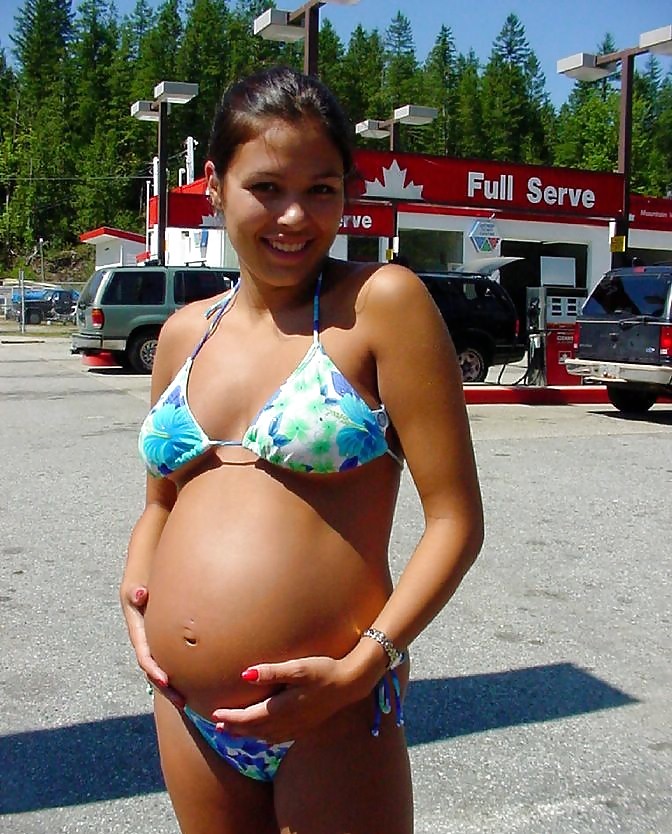 These substances are all bad for your child’s health and the baby’s growth and development. If your child uses e-cigarettes, it’s best to avoid these too.
These substances are all bad for your child’s health and the baby’s growth and development. If your child uses e-cigarettes, it’s best to avoid these too.
Your child should check with a doctor or midwife that any medicines they’re taking are safe for pregnancy. This includes prescribed medicines, herbal medicines, natural supplements and medicines from chemists and supermarkets.
If your child needs help to stop smoking, they can call Quitline on 137 848. And if you have concerns about your child’s substance use, talk to your child straight away and encourage your child to talk to the doctor, midwife or school nurse.
Some young parents can feel anxious, frustrated, angry or overwhelmed. Sometimes this can even lead to teenage violence in the home. If you notice your teenage child struggling with these feelings, you or your child can get help by calling the National Domestic Family and Sexual Violence Counselling Service (1800RESPECT) on 1800 737 732. You can also get online counselling at 1800RESPECT.
You can also get online counselling at 1800RESPECT.
Supporting pregnant teenagers and teenage parents to finish school
Education is the key to a positive future.
You and your child could talk together to a social worker, counsellor or your child’s antenatal team. This can help you find out more about education options and planning, as well as school programs that support young parents.
Your child might be able to get special consideration or extra time-out for medical appointments or poor health. A modified timetable can help some young parents-to-be. Some secondary schools have child care facilities.
When your child’s baby is born, you’ll be a grandparent. It might be good to think about what kind of grandparent you want to be and how big a role you want to play in raising your grandchild.
Services and support for parents and pregnant teenagers
The following services can help as you and your family go through this big life change.
Brave Foundation – this charity equips expecting and parenting teens with resources, referral and education opportunities to facilitate happy, healthy and skilled families over time.
- Phone: 0448 088 380
- Hours: 9 am-4 pm, Monday to Friday
Parentline Australian Capital Territory
- Phone: (02) 6287 3833
- Hours: 9 am-9 pm, Monday to Friday
Parent Line NSW
- Phone: 1300 130 052 (cost of a local call)
- Hours: 9 am-9 pm, Monday to Friday; 4 pm-9 pm, Saturday and Sunday
Parentline Queensland and Northern Territory
- Phone: 1300 301 300 (cost of a local call)
- Hours: 8 am-10 pm, 7 days a week
Parent Helpline South Australia
- Phone: 1300 364 100 (cost of a local call)
- Hours: 24 hours a day, 7 days a week
Parent Line Tasmania
- Phone: 1300 808 178 (cost of a local call)
- Hours: 24 hours a day, 7 days a week
Parentline Victoria
- Phone: 132 289 (cost of a local call)
- Hours: 8 am to midnight, 7 days a week
Ngala Parenting Line Western Australia
- Phone: (08) 9368 9368 or 1800 111 546 (regional callers)
- Hours: 8 am-8 pm, 7 days a week
You can also call:
- Pregnancy Birth and Baby – phone 1800 882 436
- Healthdirect Australia – phone 1800 022 222.

Our parent and family services article also lists links and resources that can help you.
Supporting Expectant, Pregnant, and Parenting Youth in Foster Care
Expectant, pregnant, and parenting youth often face challenges balancing their school, work, and home lives with being a new parent. Young parents in foster care are at increased risk for dropping out of school, unemployment, poverty, mental health issues, and child care concerns. Ensuring that adolescent parents receive adequate social, emotional, medical, and academic support is essential to the parent's and the baby’s future. Child welfare caseworkers and others working with pregnant and parenting youth should provide guidance that is strength-based, consistent, and unbiased while presenting options for services and supports. On this page, find guidance on working with expectant and parenting youth in out-of-home care and ways to support them and their families.
- State and local examples
Addressing the Needs of Pregnant and Parenting Youth in Foster Care: A Primer on Interagency Collaboration for Children’s Bureau Grantees
Capacity Building Center for States (2019)
Explains the services offered to pregnant and parenting youth in out-of-home care by the John H.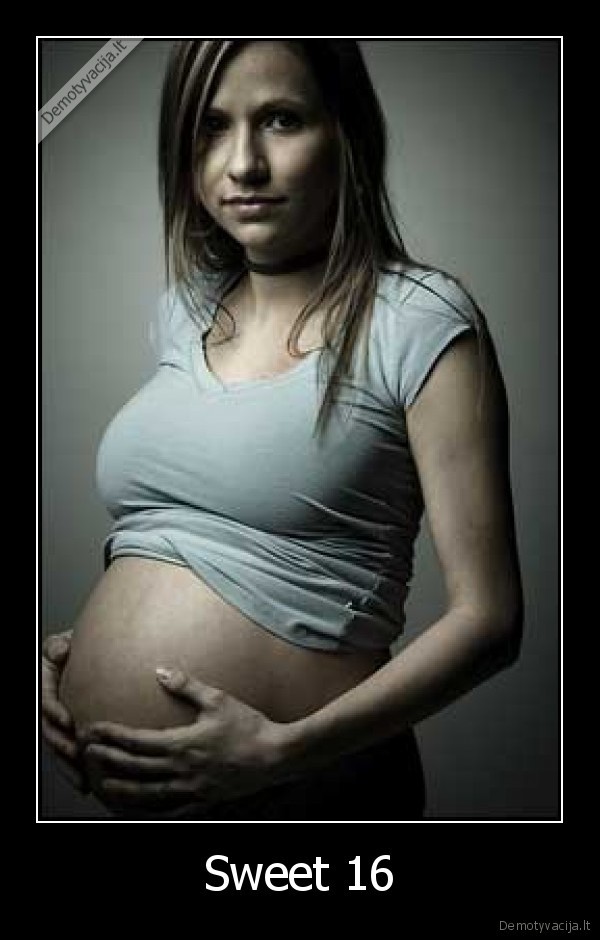 Chafee Foster Care Program for Successful Transition to Adulthood and the Adolescent Pregnancy and Parenting Program. This tip sheet provides strategies for using both programs together to improve outcomes for pregnant and parenting youth in out-of-home care.
Chafee Foster Care Program for Successful Transition to Adulthood and the Adolescent Pregnancy and Parenting Program. This tip sheet provides strategies for using both programs together to improve outcomes for pregnant and parenting youth in out-of-home care.
Challenges, Benefits Found in Providing Home Visiting Services for Pregnant and Parenting Foster Youth
Chapin Hall (2021)
Presents the results of a study that shows adolescent parents in foster care needing additional support, and one way to provide this support is through community-based home visiting programs. Outcomes from these interventions show positive effects in the areas of parent-child attachment, child and maternal health and development, parenting skills, and social support.
Connecting the Dots: A Resource Guide for Meeting the Needs of Expectant and Parenting Youth, Their Children, and Their Families
Center for the Study of Social Policy (2019)
Offers information on interventions and services for expectant and parenting youth involved with the child welfare system to help improve parent and child well-being outcomes.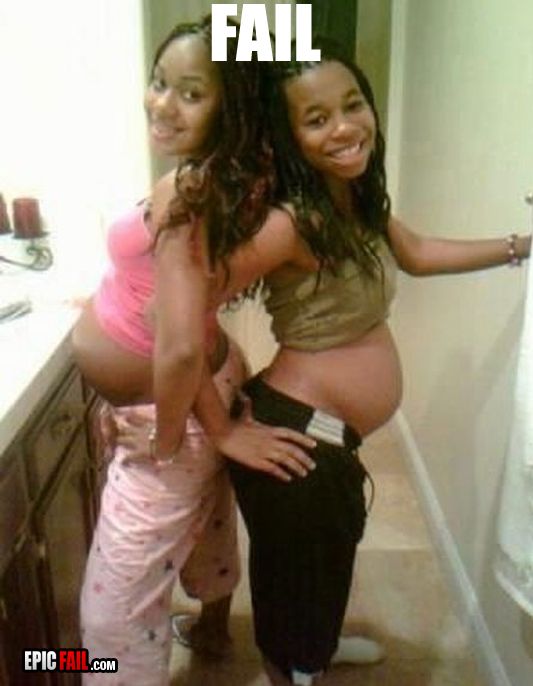
Expectant and Parenting Youth in Foster Care: Systems Leaders Data Tool Kit
Annie E. Casey Foundation (2019)
Explains how child welfare leaders can better support expectant, pregnant, and parenting youth in foster care and offers recommendations for improving policies around working with this population.
Family First Prevention Services Act: Pregnant & Parenting Youth FAQs
Center for the Study of Social Policy (2018)
Provides answers to frequently asked questions related to the Family First Prevention Services Act and the law’s impact on pregnant and parenting youth in foster care.
Having a Healthy Pregnancy
Nemours Children’s Health (2017)
Presents information on prenatal care, what to expect during a pregnancy, things to avoid, and how to have a healthy pregnancy overall.
Leveraging the Family First Prevention Services Act for Older Youth: Prevention Provisions
American Bar Association (2019)
Explains provisions of the Family First Prevention Services Act that will impact older youth, including the use of title IV-E funds to provide services to youth in foster care who are pregnant or parenting.
Promising Practices That Support Pregnant and Parenting Youth [Webinar]
Capacity Building Center for States (2017)
Reviews promising practices in services for expectant, pregnant, and parenting youth involved with child welfare and discusses evidence-based programs along with home visiting services.
Support and Resources for Expectant and Parenting Young People in Foster Care
Family Voices United (2021)
Shares responses from youth with foster care experience about supports needed for expectant and parenting youth in care or transitioning out of care. Mental health, peer connections, access to resources, support networks, and more are discussed.
What Are Some Strategies for Supporting Pregnant and Parenting Teens in Foster Care?
Casey Family Programs (2018)
Examines challenges faced by child welfare agencies that are working with pregnant and parenting teens in foster care and discusses effective programs for this population that aim to ensure the healthy development of the teen parent and the child.
WIC PreScreening Tool: Special Supplemental Nutrition Program for Women, Infants and Children (WIC)
United States Department of Agriculture Food and Nutrition Service
Presents a tool that caseworkers and others working with pregnant and parenting youth in foster care can use to assess whether youth are eligible to receive WIC benefits. Most young people may not be aware of this resource, so this is something an adult should help with. The tool takes approximately 15 minutes to complete.
(Back to Top)
Pregnancy and childbirth in adolescence - Adolesmed
About 16 million women aged 15-19 give birth each year, accounting for about 11% of all births worldwide. 95% of these births occur in middle- and low-income countries. The average adolescent birth rate in middle-income countries is more than twice that of high-income countries, and five times higher in low-income countries.
Adolescent birth rate
in Eastern Europe and Central Asia
(number of live births per 1,000 women aged 15-19)
Source: Database TransMonEE http://www.
transmonee.org/ 2014,
* World Bank database http :// data . worldbank . org / indicators
While rates of teenage pregnancy are declining globally, there are significant regional and national variances. Early pregnancy occurs more frequently among the poorest and least educated adolescents. For some of these girls, pregnancy and childbirth is an expected and desired event, but not for everyone.
Risks for mother and child
According to the World Health Organization (WHO), pregnancy, abortion and childbirth during adolescence are among the leading causes of maternal and child mortality worldwide. The probability of stillbirth and death of newborns in adolescent mothers is 1.5 times higher than in women aged 20–29 years.
Most adolescent girls are not yet physically developed enough for safe pregnancy and childbirth. In early adolescence, girls are still growing, and their pelvises do not reach the size of adult women's pelvises. As a result, there is a high probability of disruption of normal labor activity. During pregnancy, nutrient requirements increase, which, in turn, can lead to slower growth of the girl. Finally, even if a pregnant teenage girl is physically ready for pregnancy, she most often lacks social and emotional maturity. Often a young mother has a negative attitude towards her unborn child, she refuses to breastfeed her baby and cannot provide him with proper care.
In early adolescence, girls are still growing, and their pelvises do not reach the size of adult women's pelvises. As a result, there is a high probability of disruption of normal labor activity. During pregnancy, nutrient requirements increase, which, in turn, can lead to slower growth of the girl. Finally, even if a pregnant teenage girl is physically ready for pregnancy, she most often lacks social and emotional maturity. Often a young mother has a negative attitude towards her unborn child, she refuses to breastfeed her baby and cannot provide him with proper care.
Pregnancy and childbirth in women under 18–20 years of age often occur with complications such as early and late gestosis, miscarriage, the threat of spontaneous abortion (miscarriage), impaired uterine contractility during childbirth, the birth of underweight children, fetal hypoxia during pregnancy and childbirth. The complicated course of childbirth occurs in most young women in labor.
Pregnant teenage girls are more likely to smoke and drink alcohol than older women, which can lead to many problems for the baby after birth.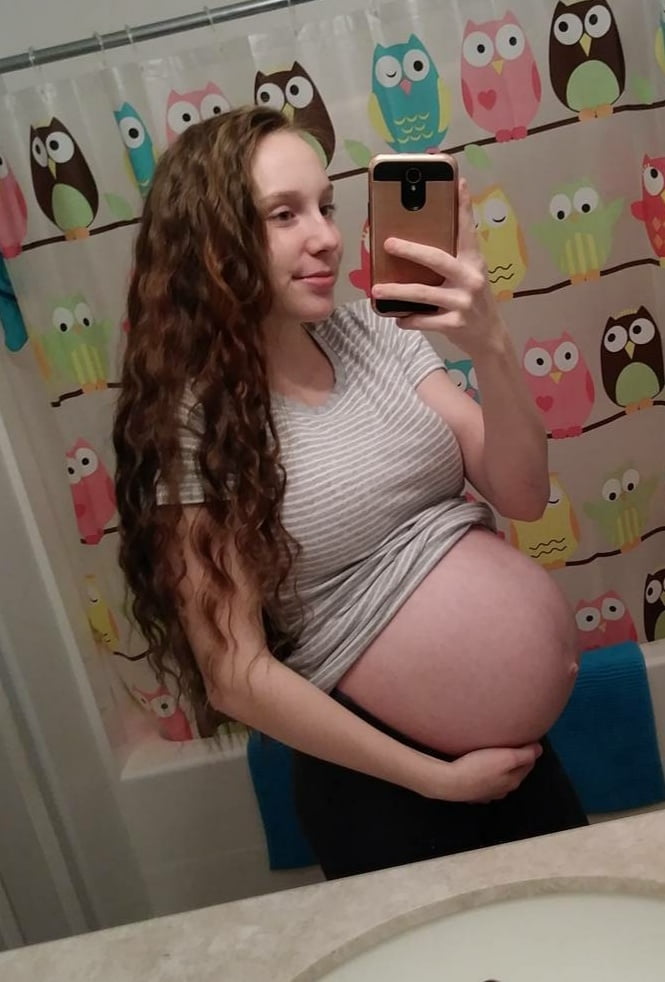 Children born to teenage mothers are more likely to have low birth weight and more likely to experience health problems compared to children born to older mothers. Children of adolescent mothers often have an age delay in the development of psychomotor skills, a high level of diseases of the central nervous system.
Children born to teenage mothers are more likely to have low birth weight and more likely to experience health problems compared to children born to older mothers. Children of adolescent mothers often have an age delay in the development of psychomotor skills, a high level of diseases of the central nervous system.
Social consequences of pregnancy for the adolescent mother
Even if the birth ended without harm to the reproductive and somatic health of the young mother, the psychological and social consequences can be very undesirable. Pregnancy can leave a girl out of school and prevent her from continuing her education after giving birth, which can lead to long-term unemployment or limit opportunities for well-paid and decent work.
A pregnant teenage girl and a young mother often find themselves in a difficult life situation due to the partner's refusal to share responsibility for the child and the lack of support from parents and other loved ones. Unable to support themselves and their children, young mothers often leave their children in the care of the state.
Unable to support themselves and their children, young mothers often leave their children in the care of the state.
Young mothers are more likely than older mothers to develop postpartum depression, and may experience mental health problems due to lack of support from family and friends, isolation from friends and family members, financial difficulties.
Most teenagers do not plan or expect pregnancy. Therefore, the very suspicion of a possible pregnancy can cause psychological shock. A girl may be faced with a difficult choice to keep or terminate the pregnancy, and this, with any decision, can lead to depression, and under the most unfavorable circumstances, suicide.
Pregnancy during adolescence can be the cause of an unplanned marriage. Often, persons entering into marriage as teenagers are characterized by a lower level of education, social status, and official position. Incomes in such families are low, and the families themselves often break up due to various reasons, including socio-economic ones.
Based on WHO materials, UNICEF manual "Adolescents at risk of HIV infection: A participant's book" Kyiv. 2012., and UNFPA manuals “Reproductive health counseling for adolescents and youth” Minsk, 2011.
Prevention of teenage pregnancy
The problem of early pregnancy is relevant because in the current socio-economic conditions of the country, the number of early pregnancy and childbirth among adolescents increases every year. This is a global trend. In our area, however, the number of teen pregnancies has been declining from year to year. In 2010, 11 underage pregnant women were registered; of which 9pregnancies ended in term delivery,2 - termination of pregnancy up to 12 weeks. In 2011, there were 9 minor pregnant women, 8 urgent deliveries, one abortion. Four pregnant women in 2012, 2013 – 2 and in 2014 two. Since 2012, all pregnancies among adolescents in the district ended in childbirth, there were no abortions.
One of the negative aspects of early pregnancy is the harm to the health of the teenage mother and her child.
According to medical indicators, early pregnancy is considered to occur in a girl under the age of eighteen. Only by the age of eighteen, the girl's body is already sufficiently formed and completely ready for bearing and giving birth to a baby. Therefore, pregnancy and childbirth at a young age can be dangerous for both the life of the mother and the baby. The negative aspects of early pregnancy include the fact that 70% of pregnancies in adolescents end in abortions, and about 15% are miscarriages. And only 15% of girls can safely bear and give birth to babies.
Artificial termination of pregnancy cripples both the body and the soul of the girl. After an abortion, many girls will never be able to have children. The younger the age of the pregnant girl, the more dangerous the process of bearing a child and subsequent childbirth for her. Girls who become pregnant between the ages of thirteen and sixteen have a harder time carrying babies, they are much more likely to develop various pathologies of pregnancy (for example, anemia, severe toxicosis or placental insufficiency), which is why the risk of miscarriage is three times higher.
Pregnancy in adolescent girls aged 13-17 from a psychological point of view has a destructive effect on the development of their emotional-volitional sphere, value orientations, the formation of sexual and maternal behavior. This applies to both “unfavorable” and “favorable” (according to the factors of desirability and “legality”) young pregnancies.
In addition to the medical aspect of this problem, there is also a social aspect that takes into account the interpersonal relationship and interaction of family members. What parent would be happy to know that their fifteen-year-old daughter is pregnant? In the best case, if the girl's family accepts such news steadfastly, without reproaches and conflicts, and tries to morally support the teenager. It also turns out that most parents themselves send their daughter for an abortion, disfiguring the psyche and health of the child.
A separate conversation about the future father, who is also often no older than his partner. Neither he nor his family, as a rule, want to hear anything about the born baby. After all, they have not even finished school yet, but what about the institute and in general, who will support this newly-born family? Therefore, of course, the task of parents, first of all, is to explain to their children in time how to protect themselves from unwanted pregnancies. There are many different ways to prevent early pregnancy.
Neither he nor his family, as a rule, want to hear anything about the born baby. After all, they have not even finished school yet, but what about the institute and in general, who will support this newly-born family? Therefore, of course, the task of parents, first of all, is to explain to their children in time how to protect themselves from unwanted pregnancies. There are many different ways to prevent early pregnancy.
Early pregnancy and childbirth in adolescence disrupt the psychophysiological growth and development of girls. In addition, pregnancy creates for them a special situation of psychological discomfort, the consequences of which either form a sense of guilt, shame, an inferiority complex, or encourage even greater liberation from normative behavior appropriate for this age. The experiences of a teenage girl associated with her pregnancy also aggravate relations with parents, who most often take repression against their child and arrange family scandals. Not in the best position is the young father, who is simply not yet able to take on such a burden of responsibility. In our opinion, the relationship between the change in the moral and social state of adolescent youth and the growth of premarital sexual relations in this age group is clearly visible, which in turn can lead to early marriages.
In our opinion, the relationship between the change in the moral and social state of adolescent youth and the growth of premarital sexual relations in this age group is clearly visible, which in turn can lead to early marriages.
The experience of generations of different years shows that no matter how strictly a young girl is brought up, early pregnancy is still possible. At the same time, the more socially inexperienced the girl is, the greater the tragedy for her this turns out to be. In the modern conditions of the sexual revolution, such a phenomenon has already ceased to be a tragedy - a common thing: she became pregnant and gave birth to an unnecessary child. There can be only one alternative to such a situation: girls who have reached the age of twelve or thirteen should be told in an accessible form about gender relations, means of preventing unwanted pregnancy, and the consequences of sexually transmitted diseases. And, of course, it is necessary to talk about the consequences for health and later life of the birth of an “unnecessary” child.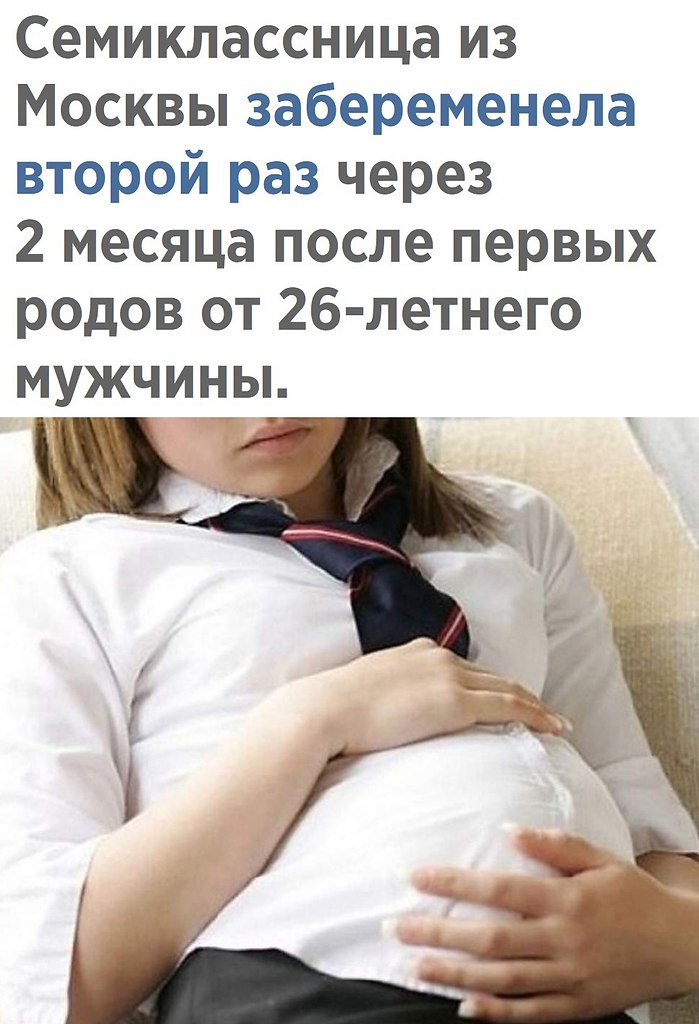
For most women, the first pregnancy is a period of strong emotional experiences that may accompany the formation of a pregnant woman's own "I", her development and formation as a full-fledged adult, able to take care of her child in the future.
In the course of studying the problem of teenage pregnancy, it turned out that since the mid-1990s, there has been a significant increase in the number of pregnancies and childbirth among adolescents. Pregnancy at a young age is a consequence of the early onset of sexual activity, incorrect or non-use of contraceptives, ignorance of adolescents in this matter.
Early sexual activity has many negative consequences, most notably sexually transmitted diseases and early pregnancy.
On the eve of the birth of a child, young mothers are unaware of the elementary features of his development and their functions in caring for him and communicating, which can serve as the basis for serious problems in mastering the parental role.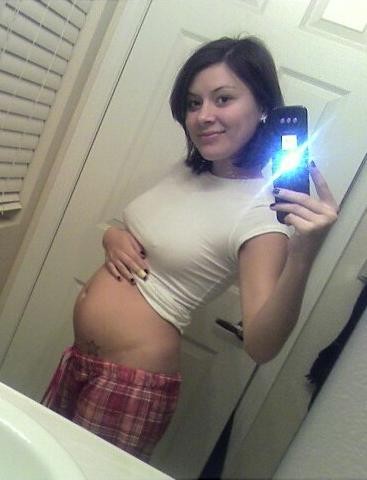 In addition, inexperience and lack of knowledge in childcare, unwillingness to take appropriate care measures, lack of maternal feelings on the part of women who have given birth can significantly affect the health and survival of children.
In addition, inexperience and lack of knowledge in childcare, unwillingness to take appropriate care measures, lack of maternal feelings on the part of women who have given birth can significantly affect the health and survival of children.
For young girls who find themselves face to face with their problem, a long-term negative emotional state, mental suffering or unwillingness to have a child is very typical. All this poses a serious danger to the unborn baby. Therefore, the importance of the state of mind of a young mother during pregnancy should be emphasized. But often the pregnancy of a minor causes only condemnation among others, which entails undesirable consequences: termination of pregnancy, leaving the child in the Baby House, in the worst case, suicidal consequences.
In most cases, the father of the unborn child is not ready to help the young mother, either materially or morally. Therefore, most of the underage girls remain unmarried and raise the baby on their own.
The majority of underage mothers were brought up in low-income, dysfunctional, asocial families. Such girls first of all need psychological, pedagogical and material support.
Currently, the network of social institutions that deal with the problems of families and children is expanding. These are teen-friendly centres. Such institutions are located mainly in large cities.
The problem of early motherhood has become more and more urgent in recent decades. This is due to the increase in the sexual activity of adolescents, leading to an increase in the number of unplanned pregnancies and childbirth among underage girls. Consequently, the number of young girls with children is also increasing.
To prevent such a negative phenomenon as early motherhood, it is necessary to conduct a huge preventive, informational and educational work among adolescents.
Prevention of unplanned pregnancy in teenage girls
Causes and consequences of unplanned pregnancy in teenage girls medical and social significance. The social significance of adolescent health is due to the fact that they represent the closest reproductive, intellectual, economic, social, political and cultural reserve of society.
The social significance of adolescent health is due to the fact that they represent the closest reproductive, intellectual, economic, social, political and cultural reserve of society.
Adolescence is a critical period in which knowledge and skills are acquired, as well as values that can last a lifetime. In order to ensure their well-being and be able to actively participate in the development of their country, they must acquire a profession and life skills, as well as receive knowledge and services in the field of their own health. The formation of the current generation takes place in the conditions of information and communication technologies and globalization. Second, young people are one of the populations with a high prevalence of HIV infection. Almost a quarter of HIV-infected people are under 25 years of age. Young age is particularly vulnerable and limited.
To ensure a full life for future children in our country, it is important that they grow up in stable families with two adult parents. Children born to parents of teenagers have a really high level of risk of problems, both at birth and later in life. Also, teenage parents with children are less likely to have a successful future life. Ending teenage pregnancies with abortion also has its risks, including reduced fertility in adulthood. Therefore, it is important for adolescents to delay the onset of sexual activity, or at least the use of modern methods of barrier and hormonal contraception to prevent pregnancy.
Children born to parents of teenagers have a really high level of risk of problems, both at birth and later in life. Also, teenage parents with children are less likely to have a successful future life. Ending teenage pregnancies with abortion also has its risks, including reduced fertility in adulthood. Therefore, it is important for adolescents to delay the onset of sexual activity, or at least the use of modern methods of barrier and hormonal contraception to prevent pregnancy.
Early initiation of sexual relations, combined with a low level of knowledge in this area, poor awareness of contraceptives and methods of contraception and insufficient use of them, leads to an increase in the number of pregnancies among adolescents and, as a result, to an increase in the number of abortions, adverse birth outcomes and worsening of reproductive adolescent health.
The rate of use of contraceptive methods and means in Belarus is much lower than in Europe and the USA, especially at the first sexual contact.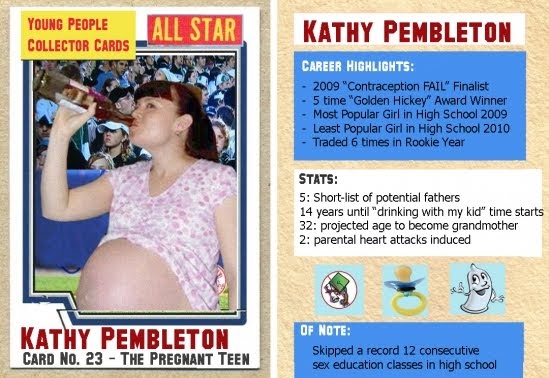 According to a study conducted in 2009year, only 44% of respondents aged 15-24 used any methods and means of contraception at the first sexual contact.
According to a study conducted in 2009year, only 44% of respondents aged 15-24 used any methods and means of contraception at the first sexual contact.
Recent studies show that adolescents' preferences are changing - they are more likely to use modern methods of contraception. There is a growing number of adolescents using hormonal contraception, and especially - using a condom.
Currently, there are pronounced negative trends in the reproductive health of adolescents and young people, which aggravate the demographic situation in Belarus. Medicine turns out to be powerless in front of these trends, which repeatedly proves that among the factors affecting health, only about 10-12% belong to healthcare, heredity determines 15-20%, ecology - 10-15% and 50% - lifestyle.
Main patterns of reproductive behavior of adolescent girls:
- irregular sexual life;
- many sexual partners;
- inadequate sex education;
- fear of parents and doctor;
- using friends' advice in choosing a contraceptive method;
- short-term use of contraception;
- use of ineffective methods of contraception.

Lack of knowledge about contraceptives is a high risk of unwanted pregnancy. Moreover, the younger the age of adolescents, the more often they have abortions.
The Universal Declaration of Human Rights states that adolescents have the right:
- to be informed about reproductive health and its components;
- access to safe and effective methods of contraception;
- conscious decision about the pace and timing of self-reproduction.
According to WHO recommendations, adolescents have the right to choose their contraceptive method and should have access to a wide variety of contraceptive choices.
Adolescents often act impulsively and emotionally without thinking about the consequences, therefore, when choosing a method of contraception, one should exercise balanced judgment and adhere to the rules of friendly and confidential communication, while maintaining complete confidentiality of the conversation. It must be remembered that adolescents may not have enough money to buy contraceptives, but will try to hide their sexual activity from parents and adults. At the same time, sexual activity, unfortunately, is superimposed on the almost universal ignorance of modern adolescents about the basics of the anatomy and physiology of the reproductive system
Today, the situation in Belarus is characterized by a low level of awareness of adolescents about family planning, sexuality, sexually transmitted diseases, methods of effective complex contraception, safer sex, etc.
did not have enough information about its use: “Although I knew that there are condoms, pills, but we did not use anything. I thought he was in control. But it didn’t work out”, “I lived a sexual life, but I thought that this would not happen to me, it would not work out.”
Adolescents prefer to receive information from the media (Internet), from friends and peers. They also do not try to discuss relationship issues, intimate problems with their parents, and parents, in turn, believe that there is no need for sexual education.
Sexuality education can help you avoid problems associated with teenage sexuality. But the question is not to "protect" from knowledge about one's sexuality or to inform about the possibility of contracting STIs, increasing the likelihood of "infection" while intoxicated, about HIV / AIDS. Most researchers in sex education see not only information on biology and contraception. The main thing is to bring up positive standards among the younger generations and give the foundations of morality: the formation of the values of a healthy lifestyle, the self-worth of children, a conscious attitude towards parenthood, positive marriage and family attitudes, and a culture of gender relations.
Sex education is not limited to issues of contraception and protection from diseases, but acts as part of the process of personality formation, it includes not only health problems, but also moral, legal, cultural and ethical aspects.
It is also undeniable that an increase in the contraceptive culture contributes to a decrease in the number of abortions.
At the same time, the following questions remain unresolved and relevant to the present day. Do teenagers know where they can get help or advice? Will the girls go to a doctor's consultation without fear that they will find out about her problem in the small town where she lives? Do teenagers look up information about effective methods of contraception on Internet portals before having sex?
Do not forget that sexuality education is a guarantee of the social well-being of young people and future generations.
In general, the problem of prevention of teenage pregnancy is being solved interdepartmentally. Effective interaction of three types of services - family planning services to prevent early pregnancy, medical (in the event of pregnancy requires a special approach to the examination of girls). And finally, social service systems.
This is the only way to achieve positive results in solving the problem. Health protection really starts with information. But children should not be informed about gender issues on the street. Everything starts in the family. And they can get answers to more specific questions from doctors.
Children's gynecologists' offices are open today. These are unusual doctors, they have not only a sense of tact, but also understand the problems of girls.
Also, don't forget about the boys, about their health. Practice shows that children are shy, not accustomed to take care of their health. Therefore, the family must develop the habit of being healthy. In the same way as brushing your teeth, washing your face, you must learn to contact the doctors not only when an emergency occurs.
Our society deals with consequences, there is no prevention, there is no education. I consider teachers to be heroic people who single-handedly try to raise our children. But you can’t put everything on the shoulders of teachers!
Today we must speak loudly about the role of the family, about the responsibility not only of mothers, but also of fathers. In the 11th grade it's too late to talk about gender issues, in the 5th grade it's too early to talk, but sometime you need to talk. And it is better if parents start talking, and from the moment when the child realized his gender. And you don't have to read a course on gynecology - just briefly answer the question he asked.
I would like to give one example. Some students believe that the "Ethics and Psychology of Family Life" should not be taught at school. All information has already been received. “We learn everything on the street,” said the boy. And how it happens, you can probably imagine - with obscenities, in disgusting terms. His problem is that he cannot talk to his parents about this topic, his parents stop any conversations: you have not grown up to that yet! And he and his friends are already secretly going to watch pornographic films. Therefore, it is necessary to work with the family - to teach them to communicate with their children, not to be afraid to touch on gender issues.
Often talking to young people, you can also draw certain conclusions. Unfortunately, today our youth is illiterate in matters of their reproductive behavior. Often our girls do not know what the menstrual cycle is, when it should come. It's bad when a girl is left alone with her problem.
Conclusion
The problem of young motherhood has become more and more urgent in recent decades. This is due to the increase in the sexual activity of adolescents, leading to an increase in the number of unplanned pregnancies and childbirth among adolescent girls.
Physiological and psychological unpreparedness of young mothers for carrying a pregnancy is accompanied by a high number of complications of pregnancy and childbirth, the birth of premature, sick babies. For almost a third of young mothers, their motherhood is so undesirable that they make criminal attempts to terminate it during pregnancy. The increase in the number of young mothers leads to an increase in their abandonment of their children. Up to 15% of newborns left in maternity hospitals are children of adolescent girls. Approximately the same number of babies born to young mothers are temporarily kept in orphanages due to the inability of the mother to fulfill her maternal responsibilities.
Pregnancy of teenage girls causes severe family conflicts. Nearly a third of parents have a negative view of teenage pregnancy in general and the pregnancy of their young daughters in particular. Many of them insist on terminating the pregnancy, referring to the fact that a girl at that age should receive an education, and not raise children.
Until now, teenage mothers are not singled out as a separate category of socially unprotected representatives of the population, they have never acted and do not act as an object of special attention for the purpose of support and rehabilitation by state bodies. If a young mother decides to leave the child, then she has a large number of problems - firstly, these are housing and material difficulties, secondly, the inability to combine childcare with continuing education, and thirdly, serious restrictions on employment opportunities in due to the lack of specialty and work experience. Many girls after the birth of a child do not withstand such a load, which in the future can lead to early alcoholization, drug addiction and deformation of personality development.
In foreign countries, a large number of studies have been devoted to the study of contraceptive and reproductive behavior of young mothers, according to which the families of young mothers are extremely disadvantaged and included in the group of medical and social risk. A young girl, having become a mother, changes many positions of her status system. There is a trend towards downward social mobility, when all the status positions of a young woman are deteriorating. However, they cannot be considered as a single unfavorable aggregate on the basis of the mere fact of the birth of a child by a minor mother.
Even in the most progressive society, pregnant teenagers often face stigma at the very least. The girl is often left alone with her problem, she is afraid to admit even to her parents. In addition, more often early pregnancy occurs in children from dysfunctional families, when there is no normal relationship between parents and children, not to mention some kind of upbringing. In addition, becoming pregnant, the girl is forced to leave school or combine motherhood with education, which in most cases is unrealistic. The lack of education "puts an end" to the further self-realization of the girl, she has practically no chance of getting a good job, making a career. If there is no good job, then there is not enough money, which, in turn, pushes the young mother to crime. Helplessness often leads to domestic violence, hopelessness pushes to alcoholism and drug use. Such women often become pregnant again before reaching 20 years of age. And their children, in turn, turn out to be useless and replenish the baby's houses.
"Informed means armed" - said the brave scouts. You can’t argue with this: it’s better to prevent a problem than to deal with the consequences later.
Thus, a girl who has begun sexual life must clearly understand that she may become pregnant. How ready is she for this? Do you want to bear and give birth to a child? Naturally, all these issues must be resolved before the onset of intimacy. If a girl is not ready for an early pregnancy, she needs to take care of contraception. Here, parents should come to the rescue, providing their child with diverse and complete information on this serious issue. Visiting a doctor is also very important; a child needs to be instilled in a caring attitude towards his health from childhood.
Every girl should know that with the appearance of the first menstruation, she can already become pregnant, even with a single sexual contact.
It can be argued that underage motherhood in itself cannot be exclusively qualified as a problem. Not age itself, but the marginality of the social environment does not allow a young mother to socially adapt and develop a positive life scenario for herself, and therefore for her unborn child. Without the support of state and public structures, young mothers will not be able to help themselves in solving many of the problems that confront them.
After analyzing various literature in the field of social medicine, social pedagogy, sociology, as well as scientific periodicals in this field, we can draw the following conclusions: , availability of work, living conditions, psychological and economic support from parents, as well as the attitude of society towards teenage motherhood.
